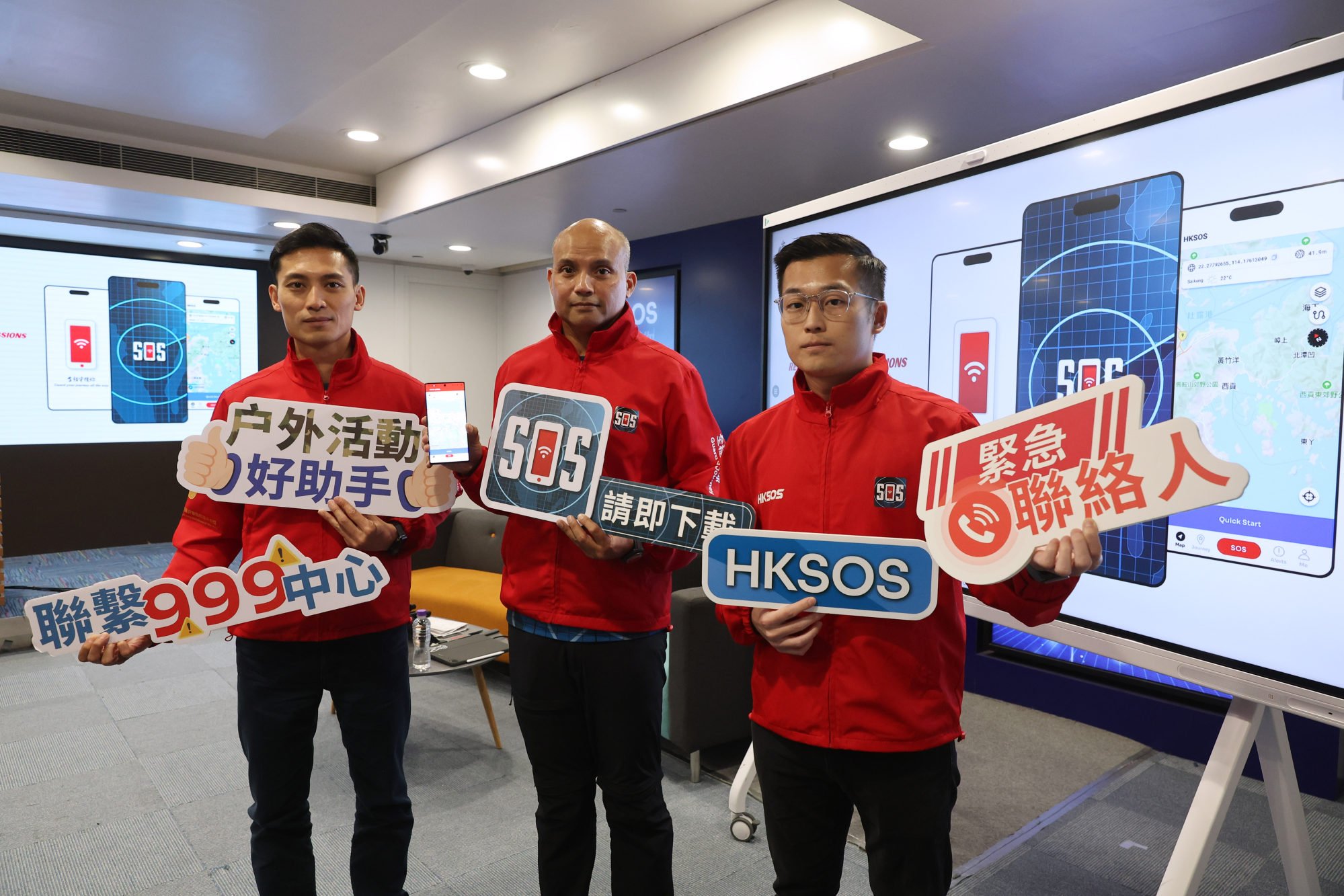
5 Hong Kong hikers rescued with help of police SOS mobile phone app in 2 months
- ‘HKSOS’ app was used to alert the force for the need for five countryside operations between January and February
- App uses patented technology developed by force and local firm Altai Technologies, allowing rescuers to detect location of phone even in locations without signal
The “HKSOS” app was used to alert the force to the need for five countryside rescue operations between January and February, with the hikers found as quickly as less than an hour after the plea for help was issued.
“Previously, [police reports for mountain rescue] were rather passive, requiring the victim or their families to make a call to the force,” said Mohammed Swalikh, senior superintendent of the force’s digital policing services bureau. “But now, the person will be telling us they have an outdoor activity, allowing us to protect citizens proactively.”

The app, launched in January, has been downloaded 57,002 times in two months. The app allows users to make a police report through a button on its interface, rather than over a phone call.
The fifth rescue involved a young man identified only as Chan, who sought help at Mai Fan Teng near Sharp Peak in Sai Kung last month.
Chan went on a hike after a friend’s recommendation, but the terrain proved to be much rougher than he could handle.
He had only finished a quarter of his intended route and was already reeling from abrasion wounds and heatstroke.
“I had thought of the ‘HKSOS’ app because if I had to call the police as per usual practice, I had to tell them my location, but it was quite foggy then,” he said. “I didn’t know how to describe where I was.”
Chan contacted police by pressing the “SOS” button on the app. His location was immediately accessed by officers, who dispatched rescuers to bring him to safety.
Hong Kong police ‘HKSOS’ app downloaded 4,000 times before official launch
The force fielded one more plea for help from two women, who had got lost on a mountain at night, by March 18.
But no rescuers were dispatched as the two were guided to safety by a passer-by soon after they called emergency services.
Users first have to log a new record on the app, inputting the type of activity they are undertaking and their estimated duration. This record enables officers at the “999” report hotline centre to view the route taken and the user’s location when the plea for help is received.
Activity records are deleted 48 hours after their creation.
The app uses “Signal Radar”, a patented technology developed by the force and local firm Altai Technologies, allowing rescuers to detect the location of a user’s mobile phone from a distance, even in locations without any mobile or internet signal.
But Nic Cheung Chi-san, senior inspector of the digital policing services bureau, emphasised it was important for residents to record their journey from the start of their trek, rather than turning on the app in moments of distress, to ensure effective tracking.
“This way, we can access your route and location when emergency situations arise in the middle of your journey,” Cheung said.
When recounting his experience, Chan said logged his journey from the start when he embarked on his hike.
The senior inspector added that residents could also name several emergency contacts in the app, who would receive notifications on their “HKSOS” page if a user had not ended their activity record after the estimated duration was inputted.
Swalikh explained that the force would employ “a combination of data, algorithm and professional judgment from reporting room staff” to determine when officers would instigate their rescue, adding that false alarms had not been a concern.
The force’s in-house app, in addition to its growing track record of success, was shortlisted for the “best mobile innovation supporting emergency or humanitarian situations” at the Global Mobile Awards, an international telecoms industry prize, last month.
The Hong Kong app competed against three projects from Ukraine on wartime network resilience and cybersecurity, a Belgian countrywide drone network for emergency services and a mainland Chinese uncrewed helicopter wireless station as finalists for the prize.
One of the Ukrainian apps was the eventual winner.

